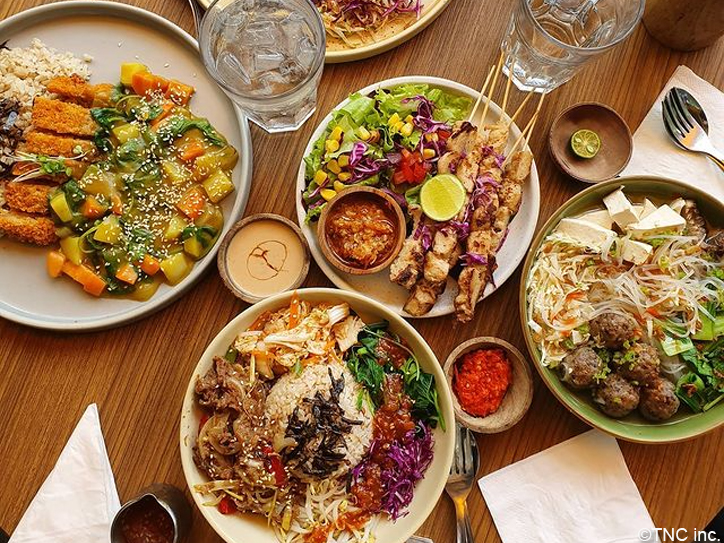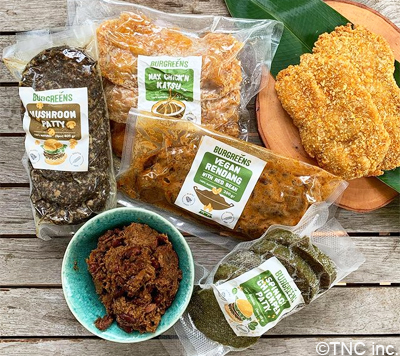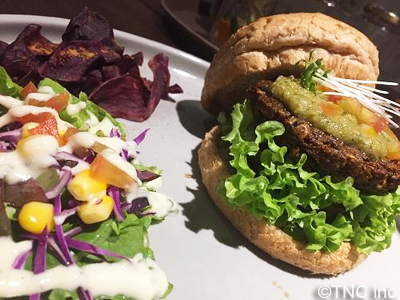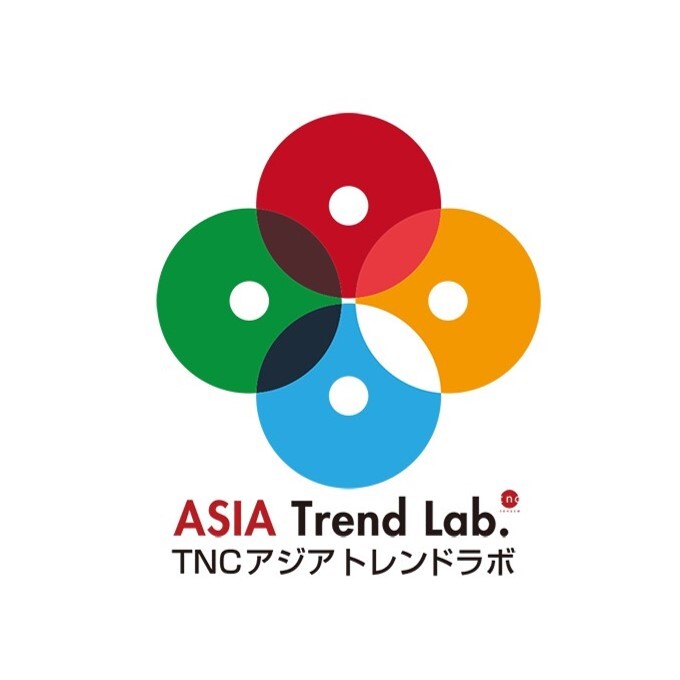[Indnesia] "Burgreen", a vegan restaurant that attracts and enlightens Indonesians
- Release date: Jun 09, 2021
- 3412 Views

Vegan Restaurants in Jakarta Vegan restaurants continue to expand
"Burgreen" is a vegan restaurant that was started in 2013 by a young Indonesian couple who studied abroad, and is steadily expanding around Jakarta with 10 restaurants by 2020, 12 restaurants under its second brand, The Green Butcher, which sells frozen foods and ingredients, and 20 partner restaurants. The company is steadily expanding mainly in Jakarta.While the restaurants are closed due to the corona, frozen foods such as satay (Indonesian grilled chicken), chicken cutlets, fried chicken, dumplings, hamburger patties, and sausages made from soybeans and mushrooms are sold through the e-commerce site Tokopedia, Gofood and Grab food delivery services, and supermarkets. The price range of frozen foods is from $0.50 to $0.50 per serving. The price range of frozen food is around 600-800 yen per meal, which is not cheap in Indonesia, so the target market is the middle-upper class and above.
Indonesian food is often low in vegetables, except for the vegetables used as garnish. Furthermore, there is a resistance to vegetables, and vegan food has a strong image of being tasteless, unappetizing, and all about salads and bread. However, Burgreen has a wide variety of menu items, generous portions, healthy flavors, and Indonesian tastes, and is supported by both men and women of all ages.
Starting in 2021, Starbucks will also sell Burgreen sandwiches and burgers. In addition, the company is ambitious to conduct its own research on ingredients, develop new menus, and hold cooking classes and seminars using plant-based ingredients. It is a restaurant that is attracting attention as it continues to educate Indonesians about healthy, safe, and secure eating habits.

Gradual change in awareness of food and health among urban middle and upper class
Indonesia has long lacked education and information on health, and many people die from adult diseases such as diabetes, and the average life expectancy is more than 15 years shorter than in Japan. Many people eat too much fatty or sweet food, or eat a diet high in chemical seasonings and additives, and the number of children with allergies has been increasing. Against this backdrop, in recent years Jakarta's middle upper class and above have been paying attention to veganism.
Translated with AI Translator
-

Author profile
TNC ASIA Trend Lab
TNC ASIA Trend Lab is an information organization run by TNC Inc. that researches and shares trends in Asia. It supports corporate marketing activities by finding insights from trends rooted in the lifestyles and habits of local consumers.
http://tnc-trend.jp/ -

Editor profile
Intage Inc.
***
 Global Market Surfer
Global Market Surfer CLP
CLP